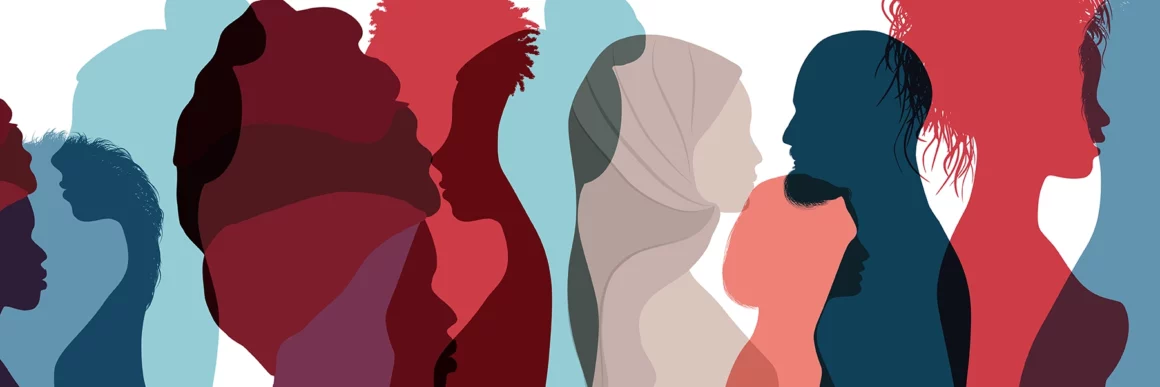Traumatic events can have a lasting impact on your teen, and have the potential to lead to PTSD. Here’s what to watch out for — and tips and advice on how to help them cope.
We all encounter hardships in life: loss, unexpected change, and circumstances we can’t control. Some of us will be dealt tragedies that are hard to cope with and move on from.
These kinds of experiences can bring on trauma — the emotional response to a severely stressful life event. This emotional response can sometimes linger far after the event has ended and lead to psychological distress and possible physical illness. It can even lead to post-traumatic stress disorder, or PTSD.
For preteens and teens, who are still developing coping skills and resilience, experiencing a tragic event that leads to trauma can be particularly devastating, with long-lasting consequences. This doesn’t have to be from direct experience; they can experience trauma after witnessing an event happening to another person or learning that the event occurred to a close family member or friend.
Preteens and teens can also experience trauma related to “adverse childhood experiences,” or ACEs — things like abuse and neglect, violence in the home or community, caregiver mental illness or addiction, and systemic issues like racism. ACEs are common and occur across all socioeconomic levels, and research has shown that the more ACEs a child or teen deals with, the more likely they will struggle later in life.

Common Types of Trauma
Some common types of trauma include:
- Surviving physical, sexual, or emotional abuse.
- Growing up in an unstable or unsafe home, an environment of neglect or substance use, or with an incarcerated parent.
- Witnessing domestic violence in the home or family.
- Surviving sexual assault, rape, or teen dating violence.
- Living through a school shooting, terrorist attack, or a natural disaster.
- Grieving the death of a family member or friend.
- Recovering from an accident or life-threatening illness.
- Experiencing racial trauma.
Learn How the Body and Mind React to Trauma
Trauma affects everyone differently. If your teen has been through something traumatic, they’ll react in their own way, and in a way you might not expect. It’s important to validate however it shows up for them.
Some common physical reactions:
- Headaches, body pains, muscle tension
- Fatigue, lethargy
- Agitation, edginess, racing heartbeat, startling easily
- Nausea or gastrointestinal discomfort
- Insomnia, nightmares
- Allergies and auto-immune disorders
Some common emotional and psychological reactions:
- Shock, denial, disbelief
- Confusion, difficulty concentrating
- Difficulty describing their feelings and regulating emotions
- Social isolation, difficulty trusting or relating to others
- Anger, irritability, mood swings
- Anxiety and fear
- Guilt, shame, self-blame
- Sadness, hopelessness, numbness
- Intense fear that the traumatic event will recur
- Use of substances to dull negative or painful emotions

7 Ways to Help Your Teen Cope With Trauma
If your teen has experienced a traumatic event of some kind, it’s vital to be kind and patient with them. They will need extra care and comfort, and they’ll need to feel safe, both in their environment and within their psyche and nervous system.
Try gentle healing. Let them lead — don’t push them to talk about it or do things they’re not ready for. Trying to “power through” or “get over” trauma may make things worse and considerably delay their recovery. Reassure them that, eventually, their feelings and pain will change.
Besides giving them a lot of space and time to heal, here are some ways to help them restore their emotional stability:
1. Encourage Connection
Make sure they have social support and spend time with the safe, supportive, loving people in their life. They might feel like withdrawing and avoiding others, but disconnection can lead to isolation and exacerbate their pain.
2. Help Them Stay Grounded
Participating in a movement practice, like yoga or dance, or playing sports can be hugely beneficial after a traumatic event. These activities keep them connected to their bodies, to the earth, and in some cases, to community. Time in nature is also incredibly healing.
3. Allow Self-Expression
Encourage them to talk about their experience with a therapist, mentor, support group, or trusted friends. Writing about their feelings and thoughts in a journal can be a safe way to express themselves.
4. Model Self-Compassion
Help them to be patient and tolerant with themselves by expressing patience and tolerance toward them — and toward yourself. Some things are out of our control; help them recognize that this is a part of being human.
5. Stick to the Healthy Basics
Promote a healthy lifestyle and model self-care for them in the home, by eating a balanced diet, working out regularly, and avoiding drugs or alcohol.
6. Help Them Find Joy
Prioritize finding time for whatever hobbies and interests they enjoy, things that make them feel good about themselves and positive about life in general.
7. Start a Meditation Practice
Mindfulness and meditation practices have a solid track record of helping people manage trauma; offer to learn with them and practice together.
Try gentle healing. Let them lead — don’t push them to talk about it or do things they’re not ready for. Trying to “power through” or “get over” trauma may make things worse and considerably delay their recovery. Reassure them that, eventually, their feelings and pain will change.
Trauma Can Evolve into PTSD
Trauma responses are normal reactions to an abnormal situation. But if these symptoms linger past a month and interfere with your teen’s everyday life, they could be suffering from post-traumatic stress disorder, or PTSD. (PTSD is a clinical disorder and needs to be diagnosed by a mental health provider.) Not all teens who experience a traumatic event will develop PTSD — and trauma can lead to other conditions, too, like anxiety and depression — but the more severe the trauma, the higher the chances that they will experience PTSD symptoms.
PTSD can look like:
- Reliving the trauma through recurring and upsetting memories, such as vivid flashbacks, nightmares, and intrusive thoughts or images.
- Avoiding reminders of the trauma. This may include staying away from triggering places or objects and avoiding conversations about the event. They may not be able to recall the details of what happened and feel emotionally numb and disconnected.
- Changes in thoughts and mood. This could include negative thoughts about themselves and feeling guilty, ashamed, worried, hopeless, and depressed.
- A marked increase in anxiety. They can experience trouble sleeping and concentrating, burst into anger, feel constantly “on guard” (like something terrible is about to happen) and might be jumpy and easily startled.

Ready to elevate your parenting? Become a member of the BLOOM family today!
Gain access to workshops, coaching, and a network of supportive parents. Don’t navigate this journey alone –
If it’s been over a month since the traumatic event and your teen isn’t feeling better, and is experiencing any of the above, it’s time to get help. Call a psychologist or other mental health professional who specializes in trauma. (Your family doctor might be able to refer you to someone, or you can search through Psychology Today’s database.)
PTSD rewires the nervous system and can worsen if left unaddressed. For people with PTSD (diagnosed by a professional), it’s vital to start treatment with a therapist who specializes in trauma as soon as possible. The therapist might use any number of techniques, including:
- Trauma-focused cognitive behavioral therapy: Helps teens identify unhealthy thought processes, reframe their experience, and come to terms with what happened.
- EMDR (Eye Movement Desensitization and Reprocessing): Helps safely access traumatic memories to process and resolve them.
- Dialectic behavioral therapy (DBT): Teaches skills to promote self-awareness, emotional regulation, and stress management.
- Somatic (body-based) therapy: Balances the nervous system after trauma through movement.
- Motivational enhancement therapy: Promotes self-motivated change in thinking and behavior.
- Experiential therapies, like adventure or wilderness therapy, art therapy, equine-assisted therapy, and music therapy: Helps trauma recovery through hands-on, real-life experiences that build trust and self-confidence.
A traumatic event can never be erased. But with the right care and support, your teen can learn to manage their feelings and integrate their experience in a way that will build their mental strength and resilience — two vital skills and major assets as they move on with their life.

Additional PTSD and Trauma Resources
If you need help supporting someone with PTSD or Trauma, BLOOM has put together a list of resources to help your friend or family member.
Child Trauma Institute
www.childtrauma.com | (413) 774-2340
National Center for Children Exposed to Violence
www.nccev.org | (877) 496-2238
National Child Traumatic Stress Network
www.nctsnet.org | (310) 235-2612
National Suicide Prevention Lifeline
www.suicidepreventionlifeline.org | 1(800) 273 8255
National Alliance on Mental Illness
www.nami.org
Mental Health America: Racial Trauma
www.mhanational.org/racial-trauma
*If you or someone you know needs help, call the National Suicide Prevention Lifeline at 988. You can also reach a crisis counselor by messaging the Crisis Text Line at 741741.
Parenting can leave you feeling overwhelmed and alone, but at BLOOM you have a team behind you. Access Live and On-Demand Workshops led by the experts. Get answers to your most pressing questions through our Ask the Expert Platform. Find your village and share ideas in our Community Group surrounded by fellow parents and caregivers. Or get personalized coaching in 1-on-1 Coaching Sessions tailored to your needs. We know raising tweens and teens is hard – that’s why we created BLOOM to nurture you through the challenges and help you flourish.
